The Samsung 950 Pro PCIe SSD Review (256GB and 512GB)
by Billy Tallis on October 22, 2015 10:55 AM ESTMixed Random Read/Write Performance
Most real-world use consists of a mix of reads and writes, and interleaving the two often poses a particular challenge to drive controllers. This mixed random access test is conducted across a 16GB span of the drive, but on a full drive and with a queue depth of 3.
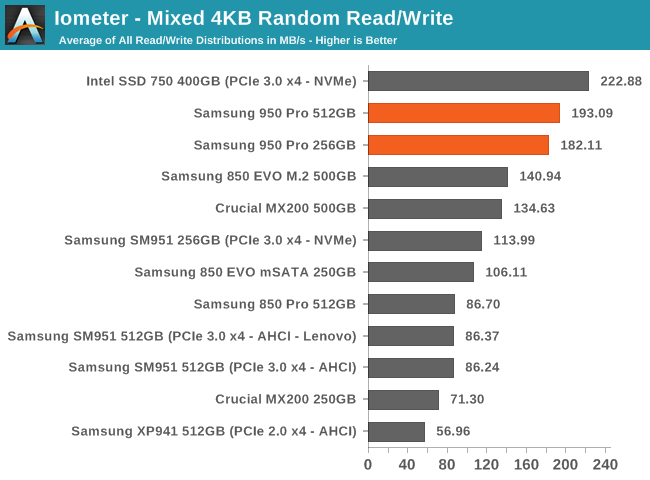
Mixed random access seems much improved over Samsung's earlier M.2 drives, and the 950 Pros fall behind only the Intel SSD 750. The 512GB drive is well behaved here and surpassing the 256GB drive as it should.
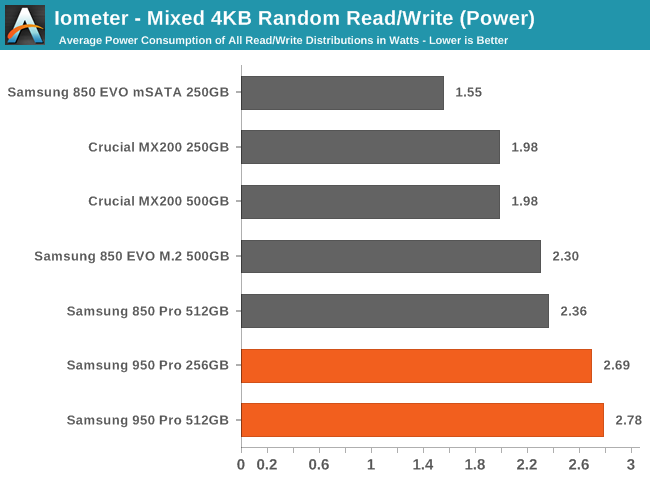
In this case, the higher power consumption of the 950 Pro is very well justified by the higher performance.
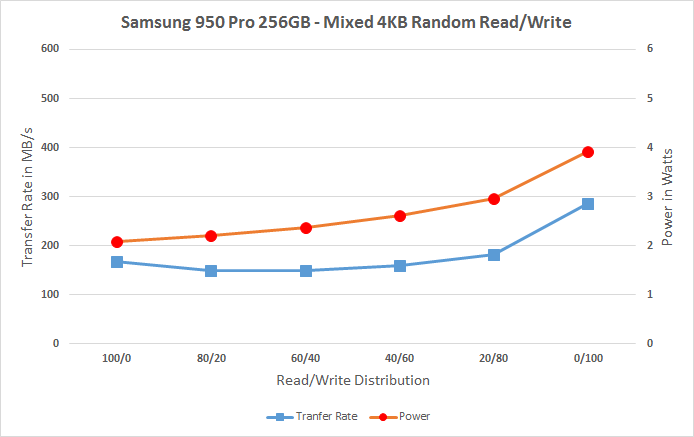 |
|||||||||
There's not much variation across the different workloads. Performance hardly drops during the middle of the test where many controllers have trouble with a balanced mix, but on the other hand the performance at either end of the test is nothing spectacular. Power consumption climbs hand in hand with the proportion of writes, but is accompanied by some increasing in overall data rate.
Mixed Sequential Read/Write Performance
The queue depth of 3 is sufficient for many drives to perform very well at either end of this test, while testing 100% reads or 100% writes. In between, performance typically suffers greatly, and that's where the winners and losers of this test are determined. Anything that's duplicating duplicating or transforming a large amount of data on the drive will produce I/O patterns similar to this test. Creating a System Restore snapshot, backing up files to a different directory on the same drive, and file compression can all produce interleaved reads and writes of large blocks of data, though not necessarily fast enough to be limited by the drive's performance.
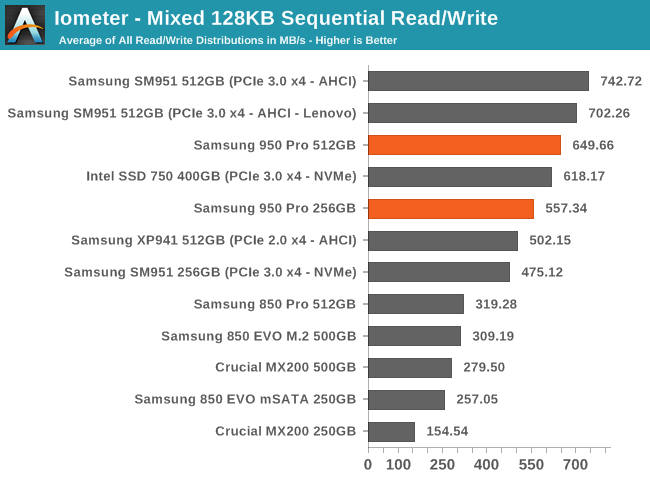
These sequential workloads allow the PCIe drives to stand out and achieve average speeds that would saturate SATA.
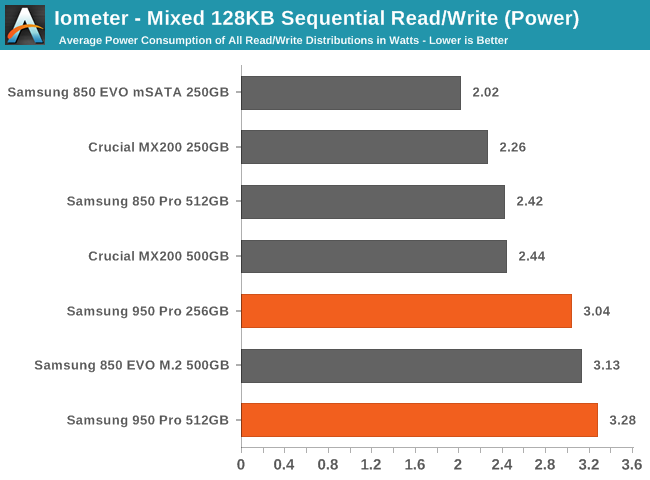
With power consumption in the same neighborhood as the SATA drives, the 950 Pro is significantly more efficient.
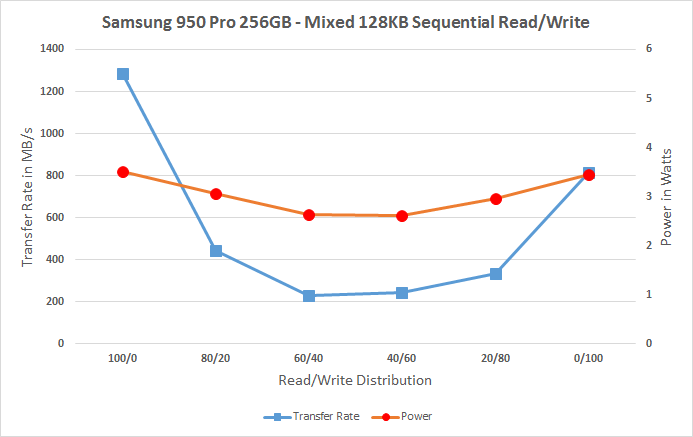 |
|||||||||
Looking at the breakdown by workload, the 950 Pro performs well on the balanced mixes and far outstrips the SATA limit on the very read-heavy workloads and the pure write section at the end of this test.










142 Comments
View All Comments
sorten - Friday, October 23, 2015 - link
'elsewhere' is one wordFrozenGiraffe - Thursday, October 22, 2015 - link
And why would these people boot it every day?Rajinder Gill - Friday, October 23, 2015 - link
If speed matters that much, use S3 resume, it is the fastest way back to the desktop. :)Samus - Friday, October 23, 2015 - link
I reboot my PC 3 times a year. I could give two shits in a cup about boot times.5th element - Monday, October 26, 2015 - link
Couldn't. It's couldn't give two shits not could.Beaver M. - Thursday, October 22, 2015 - link
With the beta NVMe driver it takes about 300 ms longer.geniekid - Thursday, October 22, 2015 - link
http://techreport.com/review/29221/samsung-950-pro...Based on that link I would say issues with NVMe boot times are largely firmware issues that are being rectified.
Refuge - Thursday, October 22, 2015 - link
If they updated their baseline every time new tech came out then they would be so busy retesting to have comparable results, that we would never see a new review ever again.AnnonymousCoward - Thursday, October 22, 2015 - link
Thanks geniekid! That review is far more valuable than what we have here on AT. AT said "loading a new level in a video game would be more likely to show noticeable difference from better performance here". More likely, huh. Then you go look at the actual data at techreport and find there's nearly zero difference. When will AT learn to measure an SSD in an actually useful way?StrangerGuy - Thursday, October 22, 2015 - link
Game load times are actually the least sensitive to SSD speeds. Even a 15 year old game like Red Alert 2 with a next to zero RAM footprint certainly doesn't load instantly on a Crucial M550, much less current titles.